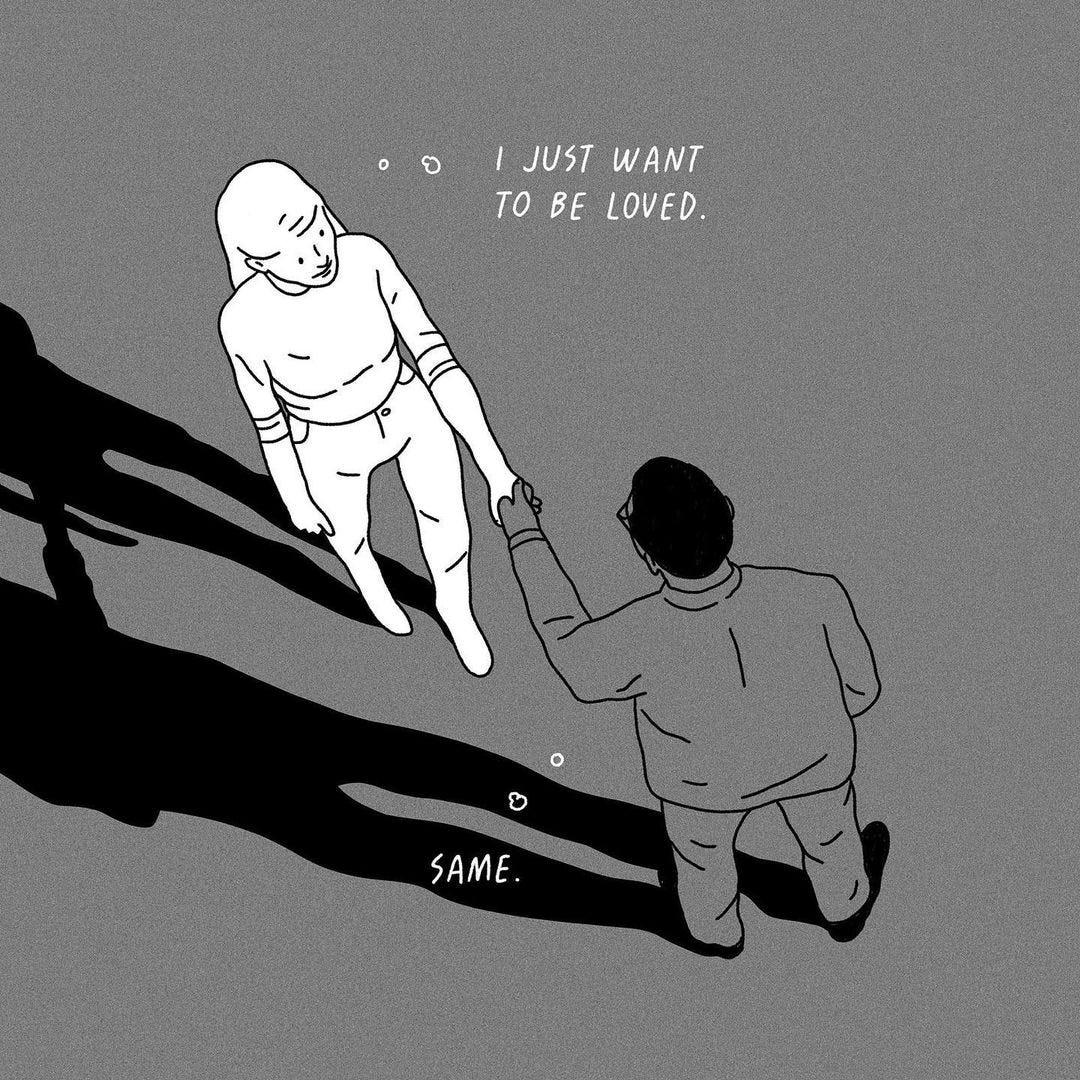Confessions of an Entrepreneur
How I won and what I lost - greed, misery, and a house on a hill

Confession 1: What
When you pitch your startup in Silicon Valley, your personal story must demonstrate how everything in your life led you to this very moment, showing that you are singularly capable of bringing this exciting and novel idea to fruition. The entrepreneur disrupting the sneaker industry says, “I recall my struggles tying shoes at four years old…” and documents the frustrations he felt throughout his life regarding the lack of shoe machine-washability, how his shoes hindered him in his athletic career, how he came to realize that everything—athleticism, innovation, space travel, the very essence of human wellbeing—comes down to shoes. And he is out to fix that.
I told such a story about my own startup, like everyone else. I started a healthcare technology company in 2015, which would allegedly revolutionize the quality of healthcare in our country, a mission, I said, born of the years I had spent struggling with chronic health issues. My mother spent her career as a doctor and became disillusioned with the insurance-led rat race that the profession had become; my father is a computer scientist: how poetic that their daughter would start a healthcare technology company. You could call it fate? This is how I told it in pitch meetings, at networking events, on panels.
What we actually did, plainly, was provide a software tool for doctors to perform a required reporting task, sending metrics on their patient care to Medicare, the government healthcare program for the elderly. We basically offered a service like TurboTax to help people more easily do some government reporting, and there were plenty of established small businesses doing the same thing with more excel spreadsheets (the disruptees, if you will). My co-founder and I used to joke that the competitive advantage of our company was that it was way too boring for most entrepreneurs to even consider doing.
While I do think we did the government reporting fairly well, at least in the later years, we were pretty far from revolutionizing healthcare. Everyone needs to start somewhere, and that wasn’t what caused me so much angst. What grated against my conscience was the fact that I couldn’t just say what we did. What nagged at my brain stem was that we picked the business primarily because we thought it was a good business, but that wasn’t reason enough in Silicon Valley, and I felt compelled to bring my personal health and family lineage in to back up the story. My story was close enough to the truth that it could be called the truth, but I can’t call it truth because, after all, I didn’t believe it. I suppose, then, I would call it a lie.
Confession 2: Who
I remember during the first year of my startup, when my distaste for the whole game was beginning to emerge, sitting in an audience of founders listening to an adored investor, an older man with a deep crease between his eyes and a booming voice, speak about his favorite startup CEO. This CEO was ruthless about hard work, we were told. If this CEO saw an employee reading a newspaper in the office, he would rip it out of the employee’s hands and throw it out the window. I am certain that this CEO got very rich and made the investor very rich, otherwise we wouldn’t have been hearing about him. That it was a gray-haired man on stage and a newspaper featured in the story could have offered me some comfort that this advice might have been dated, or at least not absolute. But I did not feel any relief. Hearing the story, I felt a mixture of disdain for this dreadful CEO character and an overwhelming guilt that I couldn’t operate that way. The whole situation implied, given who was on stage and who was in the audience, that being hardcore and ruthless was the way someone becomes a winner in this place.
My character was the opposite of the archetypal Silicon Valley entrepreneur. I was risk averse, detail-oriented, introverted, allergic to exaggeration, introspective, highly sensitive to the emotions in the room, quick to take offense, and habitually scanning for danger. It quickly became clear to me that these traits were liabilities, beta characteristics that would get in the way of bold vision and ruthless pursuit, and they threatened to render me a failure while all the other valiant and strapping people in the audience around me rocketed forward in the race of life. Perversely, my unfitness for it all made me even more determined not to turn away from the icky scene, but rather to lean in, (and how that insidious phrase goaded me on). The goal posts had been set and I was in the game. I would show that I was a worthy competitor. I would show that I was the type of person that is talked about on stage.
Keep reading with a 7-day free trial
Subscribe to Inner Workings to keep reading this post and get 7 days of free access to the full post archives.




